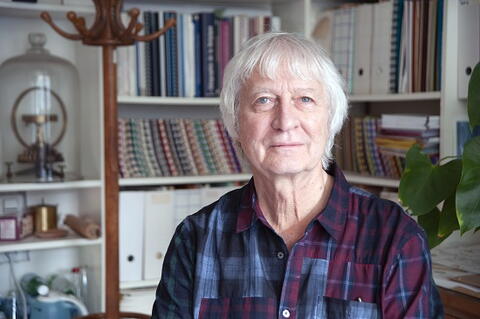
How Can We Feed Humanity?
According to United Nations projections, there will be approximately 9.7 billion people on the planet by 2050. How can we manage to feed all these people? Gilles Billen, Emeritus Research Director at the CNRS and biogeochemist at the laboratory of Environmental Media, Transfers and Interactions in Hydrosystems and Soils (METIS) at Sorbonne University, gives his recommendations.
"We need to change our model"
November 15, 2022 sounds like a new milestone. On that date, the planet will be populated by 8 billion people, according to the latest United Nations population data released in July 2022. But the projections do not stop there: by 2050, the UN expects a world population of about 9.7 billion people, and 10.4 billion in 2080. This raises the question: how can we manage to feed everyone?
One solution is recommended by several studies: to double agricultural production by 2050 to meet the growing demand for food. Gilles Billen criticizes this assumption: "While it is true that the world's population will continue to grow between now and 2050, projections also indicate that the peak will be reached around this time. However, the world population double will not double! Several studies show that the birth rate will slow down or even decline in certain regions of the world, such as Europe and the Western countries. Some of them are already experiencing a decline in their demography. If the demand for food is supposed to double, it is because the consumption of animal products per capita is rising sharply."
A more plant-based diet, a more diversified agricultural production
The researcher recommends a new diet based on plants as a first lever to meet the global food demand. "The diet in Western countries is composed of two-thirds animal proteins and only one-third plant proteins. In Europe, 70% of our plant production is used to feed livestock. This is a bit of a waste. A diet consisting of one third animal protein is both healthier and fairer, in that it would be generalizable to the whole world. The demand for agricultural products would then be greatly reduced."
According to the researcher, agricultural production must also be less intensive. "The use of industrial fertilizers is not the only way to provide the soil with the nutrients that plants need." Agroecology puts biodiversity and ecological processes at the heart of agriculture and advocates long and diversified crop rotations that alternate cereals and legumes such as alfalfa, clover, beans or lentils. "These plants have the ability to fix nitrogen from the air and thus naturally enrich the soil. Such rotations, typical of organic agriculture, could also make it possible to do without pesticides," says Gilles Billen.
A wind of change "at a pace that is still too slow"
On the question of livestock farming, Gilles Billen does not consider it to be an absolute evil. To meet food demand, the researcher even suggests reintroducing this activity in areas where there is none. "We must stop this industrialization of concentrated industrial livestock farms fed with corn and transgenic soy imported from across the Atlantic, as is the case in Brittany, for example. In other regions of France, that exclusively grow cereal for example, it is also necessary to better distribute livestock and to reconnect it with crops."
He continues: "The important thing is to homogenize the territories, to diversify the crops and to limit chemical fertilizers in order to preserve the land and to produce quality food. A "more peasant" agriculture, the old-fashioned way, more respectful of the environment, biodiversity and climate, which is certainly gradually regaining ground, but "at a rate that is still too slow" for Gilles Billen.
"Our work has shown that by activating these three levers—a less meaty diet, crop rotations that include legumes, seeds and fodder, and the reconnection of livestock farming—it is perfectly possible to feed France, Europe and the world by 2050 without increasing cultivated land." He added: "The conditions are now right to opt for a new model. A wave of change is underway, but it is not yet sufficient, despite the food scandals or the Covid crisis, which had led to an awareness of the model that was proposed until then. However, the industrialization of agriculture has been the same for fifty years so it has become the norm. The agricultural and agribusiness lobbies have become very powerful and lock in any structural change."
